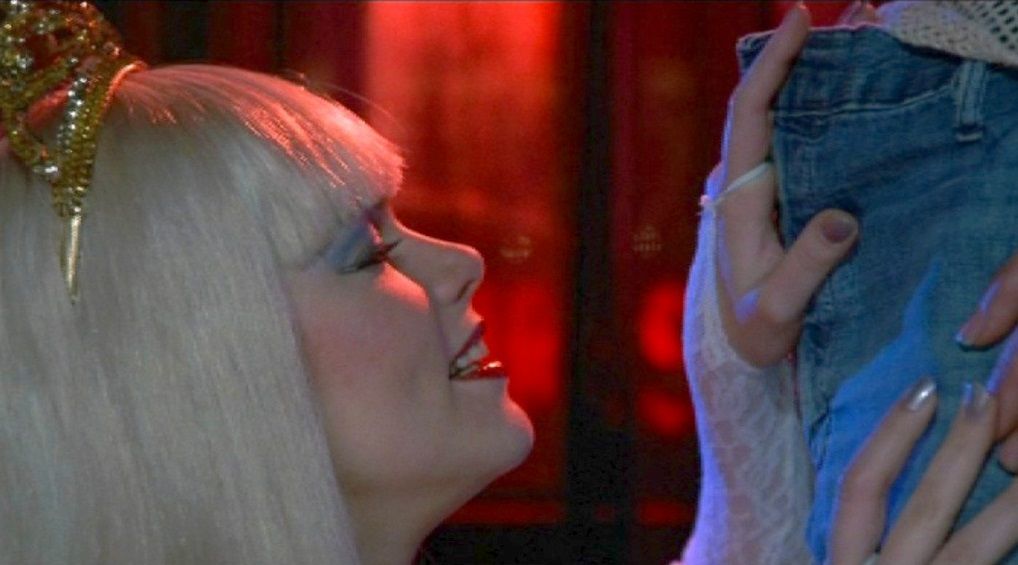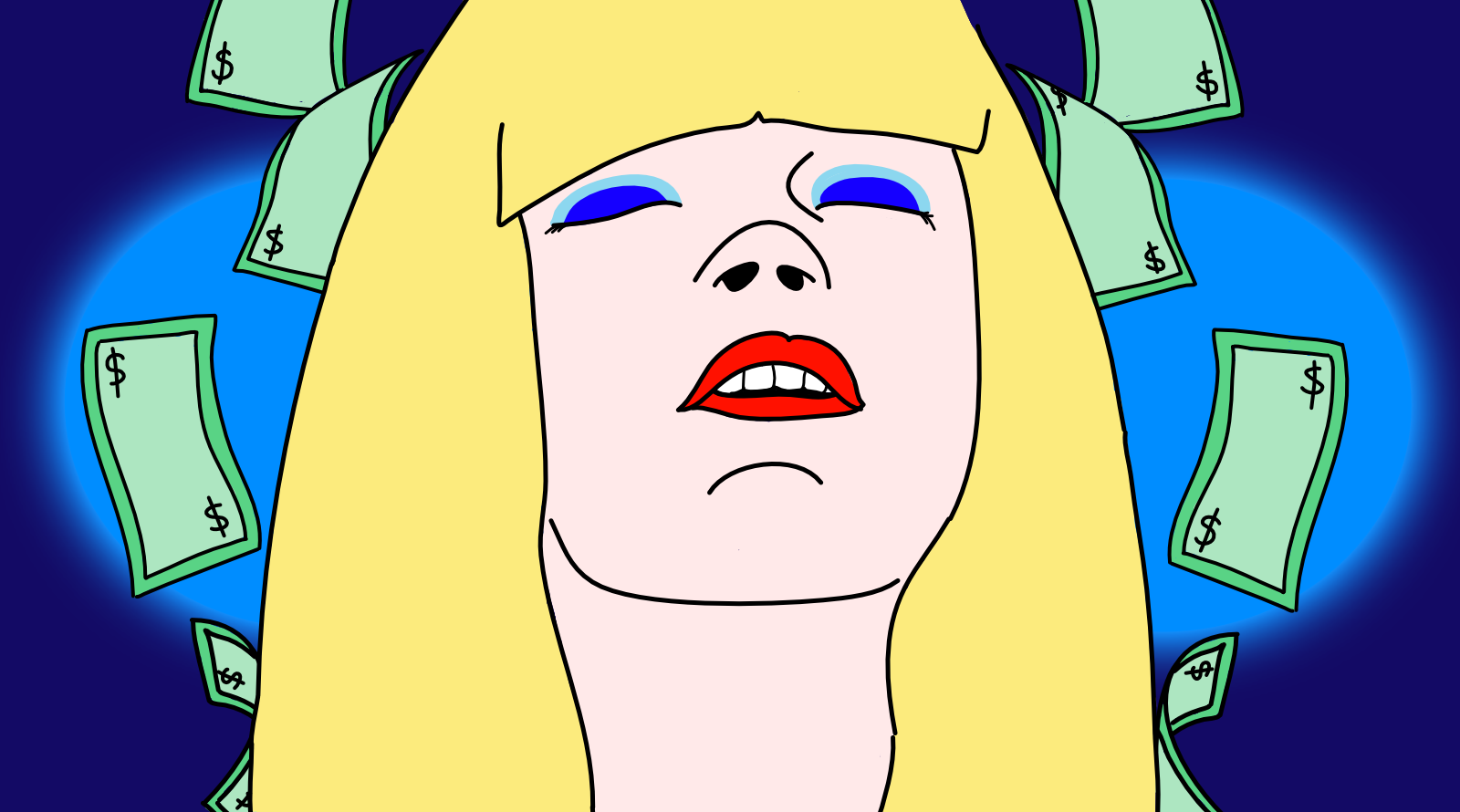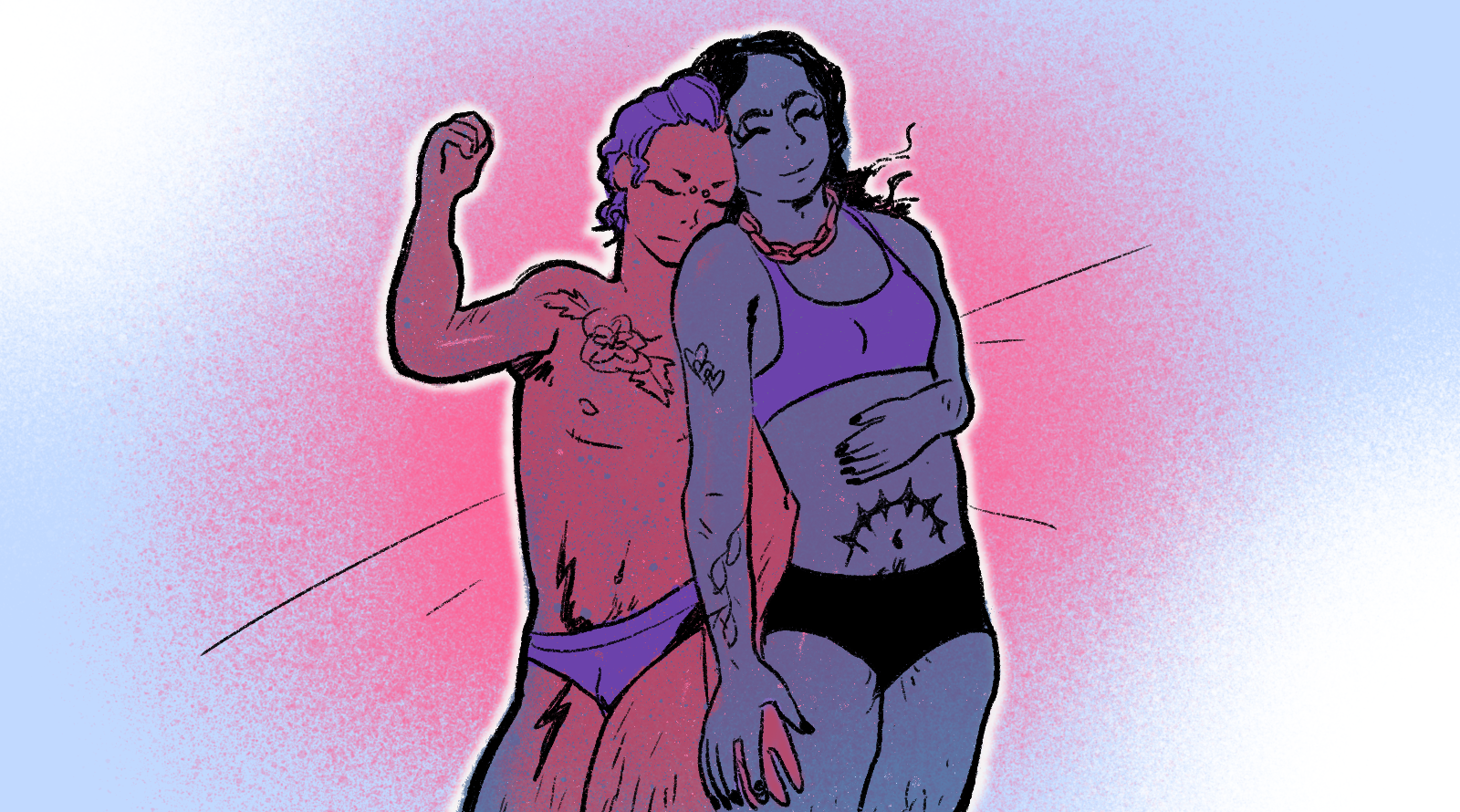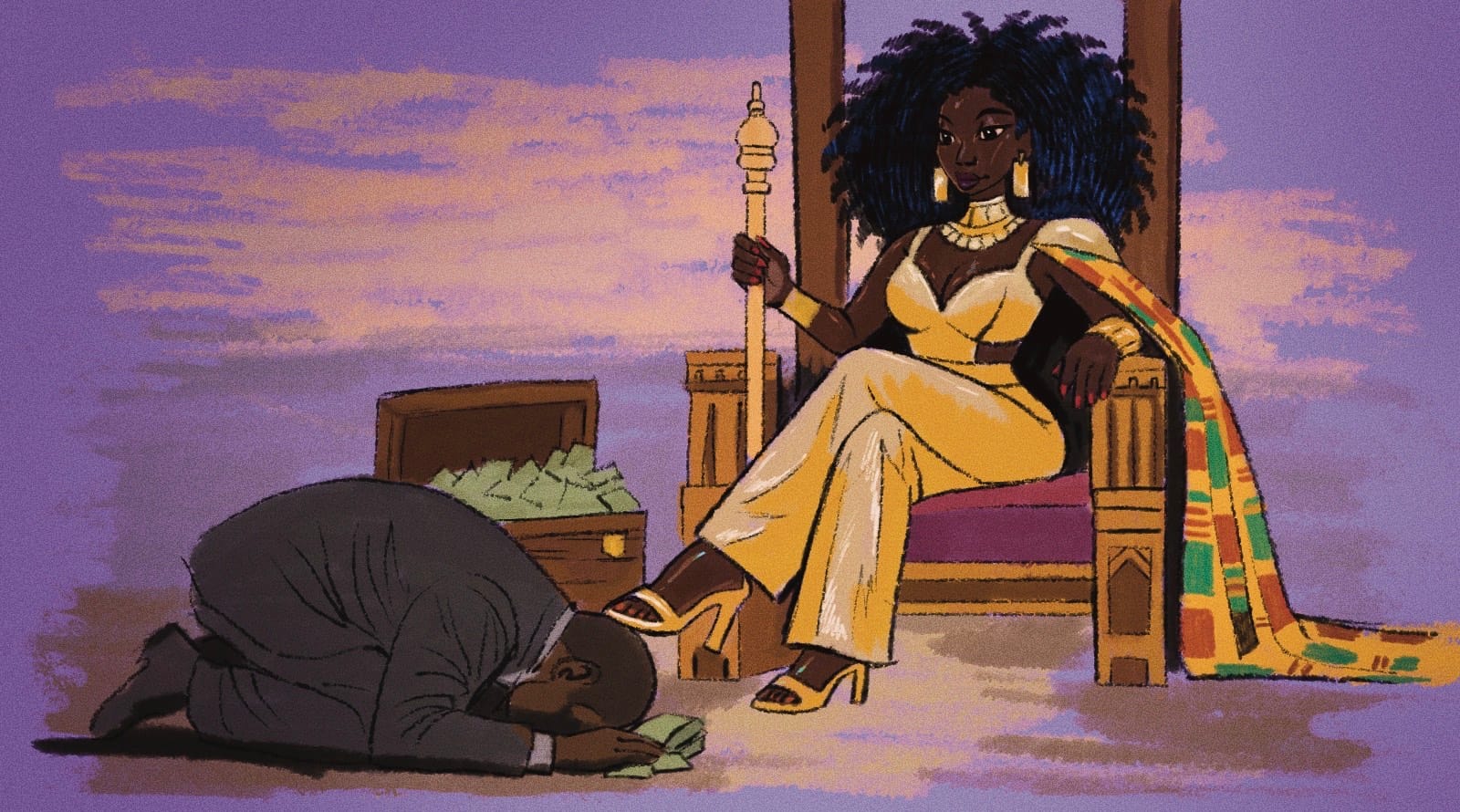This movie is bafflingly reviled, but I think it is one of the best in Ken Russell’s entire oeuvre. I discovered my parents' hidden VHS copy when I was young and watched it so often they eventually noticed its absence and quietly changed its hiding place. Initially, it went way over my head, but now I realize how much of an impact it had on my tastes and perhaps even made me curious about sex work.
It’s a cult classic, self aware yet dripping in sleaze. “Crimes” is audacious, seedy, ridiculous, and expertly campy. It remains an apt social commentary on hypocrisy, heteronormativity, and the masks we wear to hide ourselves.
Kathleen Turner plays Joanna – a cold, ambitious fashion executive by day. And by night, China Blue – a quaalude-popping hooker working the LA red light district, specializing in over-the-top roleplays and fetishes. Turner gives one of her best performances, effortlessly capturing both personae. She doles out unforgettable one liners and quick witted banter with the kind of panache only a seasoned whore could. Fun fact: Cher was originally in talks to star, at the encouragement of then boyfriend Gene Simmons. Casting, thankfully, settled on Kathleen instead. But what I would give to see Cher in the iconic scene where China Blue fucks a cop with his own nightstick.
Her love interest, Bobby Grady, is a suburban everyman, highschool football star in an unhappy marriage to his highschool sweetheart. Disillusioned by his sad heterosexual life, he becomes intertwined with China Blue and obsessed with what he thinks will save him from the banality of the American dream – even though he thinks she’s the one that needs saving. Cue eyeroll.
Anthony Perkins gives an absolutely unhinged performance as the poppers-huffing Reverend Shayne, a pastor who patronizes China, other sex workers, and peep shows – all while delivering street sermons to save the sinners of the strip. He becomes obsessed with China, having increasingly deranged, violent sexual hallucinations, as he attempts to ‘save’ her. Fun fact: Perkins insisted on actually using poppers during takes.
Perkins was famous for being a heartthrob of the 50’s and 60’s. A role he despised, one he felt was forced onto him by studio heads to combat his more sheepish image and not so secret homosexuality. Perkins struggled immensely with his queerness, so much so that he underwent elective conversion therapy in the 70’s, eventually marrying a woman. It seems obvious to me why Perkins might choose a role like this; a story about being at odds with different parts of yourself, struggling with your identity, and wracked by inner torment.
At one point China Blue says, “That hotel is the safest place I can dream of, because there I can do anything I want, be anyone I want to be, because it’s not me”. Our job is uniquely intimate, one that requires us to offer compartmentalized moments of vulnerability and intimacy with total strangers. There have been times in my life where sex work felt more comfortable and safer than trying to date in my personal life.
While in my work character, I can play with power, desire, gender roles, and sexuality in a way that is less intimidating to share with clients who are doing the same thing. Sometimes at work I’m more easily able to access a deeper kind of vulnerability in myself than I readily can in my vanilla relationships. Sometimes masks give us an opportunity to go deeper than we can without them.
“Crimes” came out in 1984, right in the height of the Reagan era, return to family values, the AIDS crisis, and a burgeoning religious right. Politicians were regularly on the news, implicated in some new sleazy sex or drug scandal. The film was highly controversial, not just for its political commentary but its numerous and especially kinky sex scenes.
Interestingly enough, part of the reason for both the failure and success of “Crimes of Passion” is in part due to the MPAA, who initially gave the film an X rating. Previous to the mid 70’s, plenty of acclaimed films were released with an X rating, but the MPAA forgot to trademark the X, so it became used arbitrarily by the rapidly-booming adult film industry to suggest juicier, more hardcore content with an XX or even XXX rating. An X rating soon became synonymous with porn and rendered anything with an X, porn or not, high risk. It was box office suicide – no one would screen or advertise them.
The studio refused to release “Crimes” unless it was able to achieve an R rating. Russel submitted and edited it six times until finally receiving an R rating. By the end, so much of the content that drove the plot was removed, that it became a watered-down shell of itself. Most of the cast and crew has said how awful the edited theatrical version was – with that much editing it no longer made sense. The film was not a hit at the box office, but did see some success as an unedited VHS release.
With this in mind, I wonder why we have so few taboo or sexually transgressive films coming out now? In my opinion, “Crimes of Passion” is still just as transgressive and shocking as it was during its original release. In an era where we have way more access to all different kinds of media, art and ideas, and porn is the most accessible it's ever been, yet I genuinely wonder whether audiences are open to this level of horny cinema?
Porn used to have theatrical releases! With red carpets! I wasn’t even alive then but in our Marvel-monopolized box office landscape, I find myself yearning for the raw, unapologetic adult content of yesteryears. I need it weird, campy, and sleazy!
Criterion recently re-released “Crimes of Passion”, alongside a bevy of other 80’s and 90’s erotic thrillers, and there seems to be a renaissance for them. I wonder if the renaissance is due to a similar cultural pattern as when these were released. America’s cultural pendulum swung from the 70s anti imperialism and free love, to the 80’s Reaganomic religious right and AIDS panic.
Similarly, our current culture wars are seemingly pushing us further towards the right. In the last decade, there has been a lot more visibility for marginalized people, but at the same time that pendulum is slowly shifting the Left even further towards the Right. I often feel bewildered scrolling the internet and seeing fellow queer people espousing the same sexually conservative rhetoric as the repressed religious right. This comes up annually during Pride, where factions of twitter debate whether kink should be allowed at pride events. Or even recently regarding the 2023 film Poor Things, which was lambasted among the hypervigilant online-Left for gratuitous sex and (in a highly literal interpretation of the surrealist film) “pedophelia”. This is what happens when we focus on how a story is being told rather than what it’s trying to tell us. In an (admirable and earnest) effort to ensure comfort for everyone, I fear we might instead be landsliding into prudish homogeneity.
As we navigate the current cultural landscape, where sex and art continue to clash against the tides of late-stage capitalism and fascist censorship, we need more raw honesty and artistic bravery in cinema. We need more horny, transgressive films that urge us to confront our discomforts and embrace the complexities of humanity, sex, and desire.

Further reading: for more about “Crimes”, and other similar films of the era, check out the podcast “You Must Remember This” for their Erotic 80’s and 90’s series. Great gossip and fascinating cultural history.
If you liked this try: “Showgirls” and “Body Double”.
Are you a sex worker with a story, opinion, news, or tips to share? We'd love to hear from you!
We started the tryst.link sex worker blog to help amplify those who aren't handed the mic and bring attention to the issues ya'll care about the most. Got a tale to tell? 👇☂️✨





